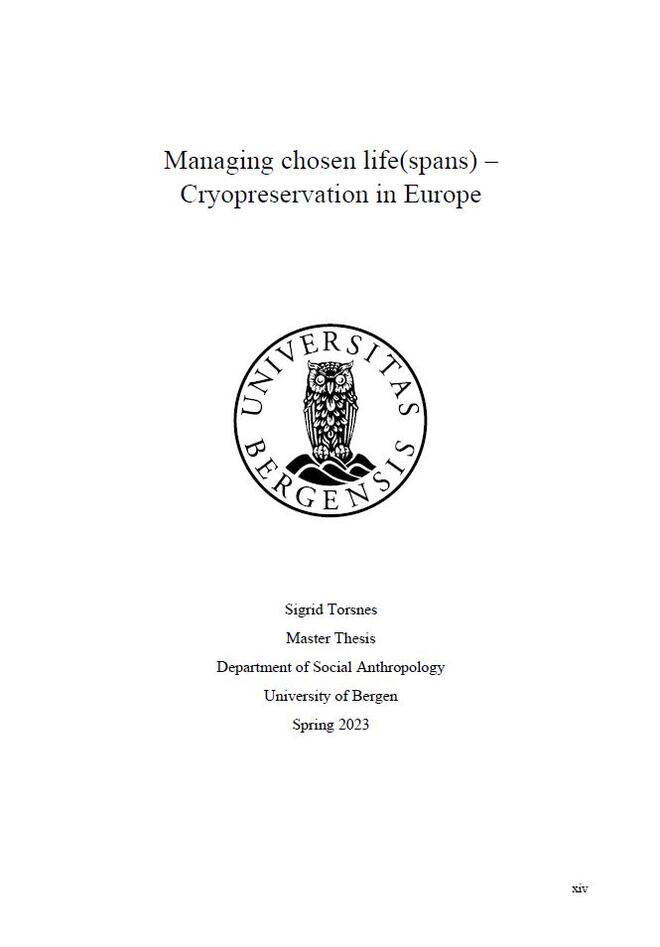Managing chosen life(spans) - Cryopreservation in Europe
Main content
Master's thesis submitted at Department of Social Anthropology, spring 2023.
By: Sigrid Torsnes
Supervisor: Professor Annelin Eriksen
This thesis explores how technoscience is used to extend life and control death through human cryopreservation (cryonics). It is based on multi-sited ethnographic fieldwork conducted in Berlin, Germany, the United Kingdom, and Switzerland, in addition to video-interviews with people interested in human cryopreservation (cryonicists) from across Europe. Where previous anthropological studies of cryonics and cryonicists, conducted in the United States and Russia, have linked cryonicists to transhumanism and described cryonics as an immortality project, I have found transhumanism and immortality to be disputed and of little use among the European cryonicists. I argue that my interlocutors work in the boundaries between pseudoscience and religious-like speculations, and the field of biomedical science. In Europe cryonicists are, as this thesis will show, mainstreaming the idea of cryonics to a much greater degree than their American and Russian counterparts. As death is framed as a process which definition has been changing with secularisation and emergence of new medical technology, death is seen as a problem which can be solved through new advancements in medical technology. I have found a group of people concerned with harnessing the possible potential of human life and managing their own lifetime; death being one such problem in need of a technoscientific fix. In human cryopreservation’s technoscientific secularised and medicalised managing with life and death, cryonicists find a potential to preserve their brain-located personhood for a future of their own choosing; A future where life spans are chosen.
